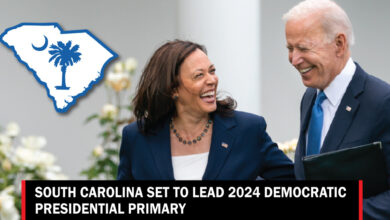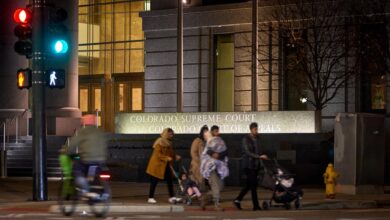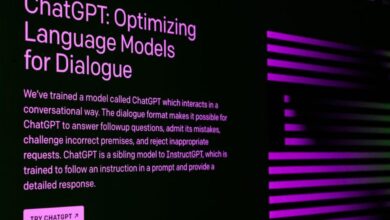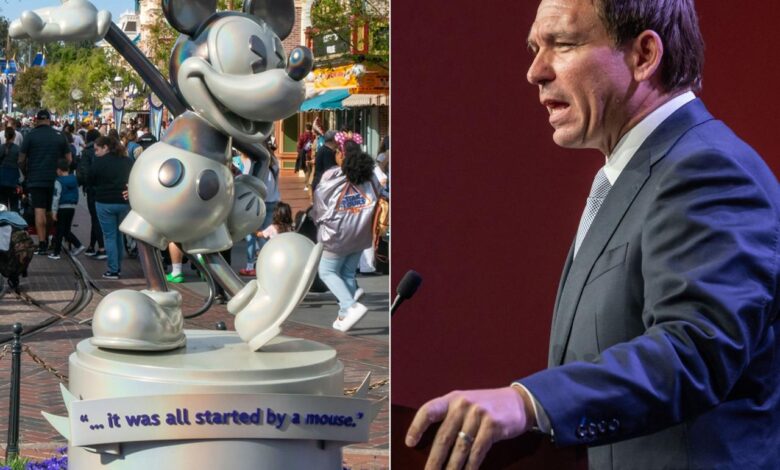
Disney Ron DeSantis Lawsuit A Deep Dive
Disney Ron DeSantis lawsuit is igniting a firestorm of controversy, pitting the entertainment giant against Florida’s governor. This legal battle, fueled by differing views on state power and corporate influence, promises to have far-reaching consequences. The clash between Disney’s expansive influence and the DeSantis administration’s stance on issues like education and government oversight has captured national attention, raising questions about the future of both business and politics.
The lawsuit stems from a series of actions and accusations. Disney’s specific grievances, the Florida government’s role in the conflict, and the key figures involved will be explored in detail. Understanding the intricate details of this complex legal battle requires careful examination of both sides’ arguments and the broader political context.
Background of the Lawsuit
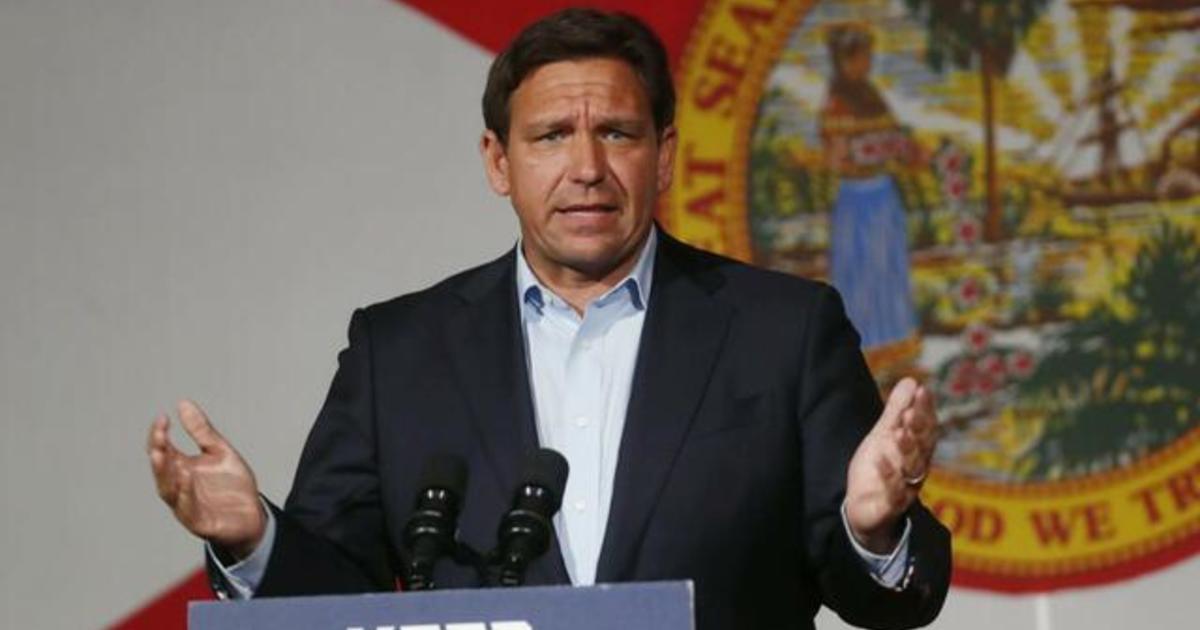
The Disney-DeSantis feud, culminating in a significant legal battle, stems from a complex interplay of political motivations, economic interests, and public policy disagreements. This controversy highlights the growing tension between large corporations and state governments, particularly when those governments implement policies that impact the corporation’s business practices and perceived values. The Florida government’s actions, in this case, have sparked widespread debate about the balance of power and the role of special interests in shaping public policy.
Events Leading to the Lawsuit
Disney’s dissatisfaction with Florida’s actions, notably the legislation regarding the Parental Rights in Education bill, spurred the company’s decision to challenge the state’s actions in court. This bill, often referred to as the “Don’t Say Gay” bill, focused on restrictions regarding discussions of sexual orientation and gender identity in schools. Disney, a company with a significant presence in Florida, expressed concerns about the bill’s potential negative impact on its image and the company’s ability to attract and retain talent.
Specific Grievances and Accusations
Disney’s primary grievances revolved around the perceived discriminatory nature of the Parental Rights in Education bill and its potential to alienate potential customers and employees. The company believed the legislation would negatively affect its business operations and reputation. Disney further argued that the Florida government’s actions were politically motivated and aimed at undermining the company’s influence and standing.
Role of the Florida Government
The Florida government, under the leadership of Governor Ron DeSantis, viewed the Parental Rights in Education bill as a crucial step in upholding its values and protecting children. The government argued that the bill was designed to promote parental involvement in their children’s education and to safeguard their well-being. The actions were perceived by the state as a response to the concerns raised by parents and constituents.
Florida’s stance on the issue solidified the state’s commitment to its values and educational policy goals.
Key Figures Involved
The central figures in this legal dispute are Governor Ron DeSantis, representing the Florida government, and Bob Chapek, former CEO of Disney, representing the corporation. Other influential figures, such as legislative representatives and legal counsel, played important roles in shaping the narrative and strategy of both sides. The involvement of these key players highlighted the intense nature of the political and legal battle.
Comparison of Perspectives
| Perspective | Disney | DeSantis | Florida Government |
|---|---|---|---|
| Motivation | Protecting company image, attracting talent, business interests | Upholding values, parental rights, political gain | Balancing state values with economic concerns, upholding education standards |
| Grievance | Political interference, discrimination, reputational damage | Perceived overreach of corporate influence, upholding state values | Maintaining balance between competing interests, upholding educational policy |
| Proposed Solution | Removal of the legislation, protection of company interests, alternative solutions | Upholding legislation, emphasizing state’s values | Finding a compromise between state and corporate interests, maintaining public support |
Legal Arguments and Issues
This section delves into the intricate legal arguments presented by both Disney and the DeSantis administration in their ongoing legal battle. It examines the specific legal precedents and statutes invoked, highlighting the contrasting legal strategies employed by each party. A crucial aspect of this analysis is the examination of the constitutional issues raised, providing a comprehensive overview of the potential ramifications of a court decision.
Finally, a table illustrates potential impacts on future legislation.The Florida lawsuit against Disney hinges on the state’s authority to regulate special districts, while Disney counters with claims of violating the First Amendment and due process rights. This complex interplay of legal principles and constitutional protections forms the core of the dispute.
The Disney-Ron DeSantis lawsuit is heating up, and it’s fascinating to see how it’s all playing out. Interestingly, the recent results of the New Hampshire Democratic primary, available here , might offer some clues about the shifting political landscape. While the primary results are certainly interesting, the ongoing legal battle between Disney and DeSantis remains a key point of contention for many.
Legal Arguments Presented by Disney
Disney argues that the state’s actions in revoking the Reedy Creek Improvement District’s special status violate the First Amendment’s free speech protections, as well as due process rights. They claim the revocation is politically motivated retaliation in response to Disney’s public criticism of the governor’s policies. This argument centers on the idea that the state is suppressing dissent through the use of regulatory power.
The company asserts that the state’s actions were arbitrary and capricious, lacking any legitimate justification. Their argument further asserts that the state’s actions constitute an illegal seizure of property without due process.
Legal Arguments Presented by the State of Florida
Florida argues that the Reedy Creek Improvement District’s special status was improperly granted and that the revocation is a legitimate exercise of the state’s regulatory authority. The state maintains that the special district’s governance structure was not in compliance with state law and that the revocation was necessary to bring the district into compliance with existing regulations. Their argument rests on the principle of the state’s inherent power to oversee and regulate local governmental entities.
Further, Florida argues that the state has the right to modify special districts.
Key Legal Precedents and Statutes
Both sides in the lawsuit are invoking various legal precedents and statutes. Disney is likely to cite cases involving freedom of speech and due process, such as
- New York Times Co. v. Sullivan* and
- First National Bank of Boston v. Bellotti*. These precedents establish limits on government interference with speech and the protection of property rights. Conversely, Florida will rely on statutes governing the creation and regulation of special districts, as well as cases dealing with the state’s authority over local governments.
Constitutional Issues Raised
The lawsuit raises significant constitutional issues, including freedom of speech, due process, and the separation of powers. The crux of the constitutional concerns revolves around whether the state’s actions constitute an improper use of regulatory power to retaliate against criticism and stifle dissent. The court will need to carefully balance the state’s regulatory authority with the fundamental rights of individuals and corporations.
Comparison of Legal Strategies
Disney’s legal strategy focuses on demonstrating that the state’s actions are politically motivated and violate First Amendment and due process rights. Their argument emphasizes the potential for abuse of power and the chilling effect on future speech. Conversely, the Florida government emphasizes the state’s regulatory authority and the need to ensure compliance with existing laws. Their argument hinges on the principle of the state’s right to govern local entities.
Potential Impacts of the Ruling on Future Legislation
| Potential Ruling | Impact on Future Legislation |
|---|---|
| Favorable to Disney | Could limit the state’s ability to revoke special districts without clear legal justification. May set a precedent protecting corporations from retaliatory actions by governments. |
| Favorable to Florida | Could strengthen the state’s authority over special districts and local governments. May embolden state governments to challenge special districts that they believe are not in compliance with the law. |
Political Context and Implications
The Disney lawsuit against Ron DeSantis, a high-profile case with significant political ramifications, has sparked intense debate across the political spectrum. The legal battle, centered on Florida’s controversial education policies, has quickly escalated beyond the courtroom into a national political discussion, highlighting the tensions between corporate interests and state-level policy. This complex interplay of legal, political, and public relations factors will shape the future of political discourse in Florida and beyond.The lawsuit is undeniably intertwined with the current political landscape in Florida, where Governor DeSantis is a prominent figure and a potential 2024 presidential candidate.
The timing and nature of the lawsuit suggest a strategic maneuver designed to both challenge specific policies and potentially influence public opinion about DeSantis’s political standing. This analysis delves into the political motivations behind the case, the wider political climate in Florida, and the possible repercussions for future political campaigns.
Political Motivations Behind the Lawsuit, Disney ron desantis lawsuit
The Disney lawsuit is viewed by many as a calculated political move by both sides. Disney, facing criticism for its perceived political stance, might seek to influence public opinion and potentially garner support for its perspective on education and other issues. Governor DeSantis, on the other hand, may leverage the case to solidify his conservative base and demonstrate his stance against perceived corporate overreach in state politics.
The potential for political gain for both parties adds a layer of complexity to the legal arguments themselves.
Broader Political Landscape in Florida
Florida’s political climate is highly polarized, with a significant portion of the population leaning towards conservative viewpoints. The state has a history of attracting both national attention and significant political investment from national figures, making it a battleground for political ideologies. This political landscape, coupled with DeSantis’s ambitious political goals, likely influences how the case is perceived and interpreted by various political factions.
The state’s demographics and the strong presence of both conservative and liberal voices contribute to the unique political context of the lawsuit.
Potential Consequences of the Ruling on Future Political Campaigns
The outcome of the Disney lawsuit could have substantial consequences for future political campaigns. A favorable ruling for Disney might set a precedent against the use of political leverage in legal battles, while a ruling in favor of the state could empower other governors or politicians to challenge corporations in similar disputes. This case could shape the future of political engagement between corporations and state governments, impacting the balance of power and the nature of political campaigning.
Potential examples include similar challenges to other corporations, and the emergence of new strategies in corporate political engagement.
Role of Media Coverage in Shaping Public Opinion
The extensive media coverage surrounding the Disney lawsuit has significantly influenced public opinion. News outlets have presented differing perspectives, which have helped shape the narrative and affected public perception of the events. The constant reporting on the case, including various opinions and analysis, has contributed to the ongoing debate. Media outlets play a crucial role in shaping public understanding of the issues, often focusing on the political motivations and implications.
Reactions of Different Political Groups
| Political Group | Reaction to the Lawsuit |
|---|---|
| Conservative Supporters of DeSantis | Generally supportive of the Governor’s actions, viewing the lawsuit as a necessary response to perceived corporate overreach and a sign of DeSantis’s strength. |
| Liberal Supporters of Disney | Often critical of the Governor’s actions, seeing the lawsuit as an attempt to stifle corporate dissent and potentially politically motivated. |
| Independent Voters | More likely to be divided, with some supporting the Governor’s approach and others expressing concern about the potential for political repercussions. |
| Business Organizations | Varying reactions, depending on their perceived alignment with either Disney or the State of Florida. |
The table above illustrates a snapshot of how different political groups responded to the lawsuit. The reactions reflect the deep-seated political divisions and demonstrate how the case has become a significant point of contention in the broader political landscape.
Public Perception and Reactions: Disney Ron Desantis Lawsuit
The Disney-DeSantis lawsuit ignited a firestorm of public opinion, quickly becoming a highly charged political issue. Reactions varied widely, reflecting deeply held beliefs about government intervention, corporate responsibility, and the future of Florida. This complex interplay of factors shaped the public narrative and influenced the evolving perceptions of the case.
The Disney-Ron DeSantis lawsuit is heating up, and it’s a fascinating case study in political maneuvering. While the legal battles rage on, it’s worth considering the upcoming Nevada caucus primary, an important moment in the political calendar. Understanding the complexities of the election process is crucial, and a good resource for that is the Nevada caucus primary explainer.
Ultimately, the DeSantis-Disney saga continues to highlight the power dynamics at play in today’s political climate.
Public Response to the Lawsuit
The public response to the Disney-DeSantis lawsuit was deeply divided, with strong opinions on both sides. Many viewed the dispute as a battle between a powerful corporation and a state government, with each side claiming moral high ground. Pro-DeSantis advocates often framed the lawsuit as a victory for local control and accountability, arguing that Disney’s special treatment was unfair and unsustainable.
Conversely, Disney supporters emphasized the company’s significant economic contributions and the negative consequences of the lawsuit on the state’s image and reputation. This polarization impacted discussions and shaped individual perceptions of the conflict.
Reactions of Interest Groups
Various interest groups responded to the lawsuit in ways that reflected their specific priorities and values. Businesses, for example, expressed concerns about the potential impact on Florida’s attractiveness as a business destination, given the negative publicity surrounding the legal dispute. Residents, particularly those in areas affected by Disney’s economic influence, held varied perspectives. Some supported the DeSantis administration, believing the lawsuit was a necessary step to address perceived abuses of power.
Others, concerned about job losses and the potential damage to the local economy, voiced support for Disney and expressed fear of unintended consequences. This diverse range of viewpoints illustrates the broad spectrum of public sentiment.
Role of Social Media in Amplifying Public Opinions
Social media played a crucial role in amplifying and shaping public opinions surrounding the lawsuit. The rapid spread of information, often unfiltered and sometimes inaccurate, created a highly charged online environment. Users on various platforms shared opinions, opinions were supported with arguments, and discussions evolved rapidly. Social media posts, often fueled by trending hashtags and viral videos, influenced public discourse and shaped the perceptions of different groups, often influencing the public perception of the case.
Media Portrayal of the Events
Media outlets presented the Disney-DeSantis lawsuit from different angles, often reflecting the biases or priorities of their particular publication. Some media outlets emphasized the political motivations behind the lawsuit, highlighting the potential for long-term ramifications on the political landscape. Others focused on the economic impact, analyzing the potential consequences for Florida’s tourism industry and the wider economy. Still others focused on the ethical implications of the dispute, debating the extent to which a corporation should influence local government policy.
This diverse range of perspectives shaped the public’s understanding of the situation.
Evolution of Public Perception
Public perception of the Disney-DeSantis lawsuit evolved over time, influenced by new developments in the legal proceedings, political commentary, and public discourse. Initially, the issue was framed as a conflict between a powerful corporation and a determined government. As the case progressed, the narrative became increasingly politicized, with various interest groups taking sides and engaging in heated debates.
The Disney-Ron DeSantis lawsuit is heating up, with both sides digging in their heels. But while the legal battles rage on, it’s worth considering the broader implications of climate change, even on seemingly frivolous activities like snow polo in St. Moritz. The recent debate around snow polo in St. Moritz and climate change highlights the stark reality of environmental pressures on seemingly unaffected areas.
Ultimately, this all underscores the need for a more thoughtful and sustainable approach to business practices, even in the realm of high-profile conflicts like the one between Disney and DeSantis.
This dynamic evolution of public opinion underscores the complex nature of the conflict and its potential impact on the political landscape.
Potential Outcomes and Future Impacts
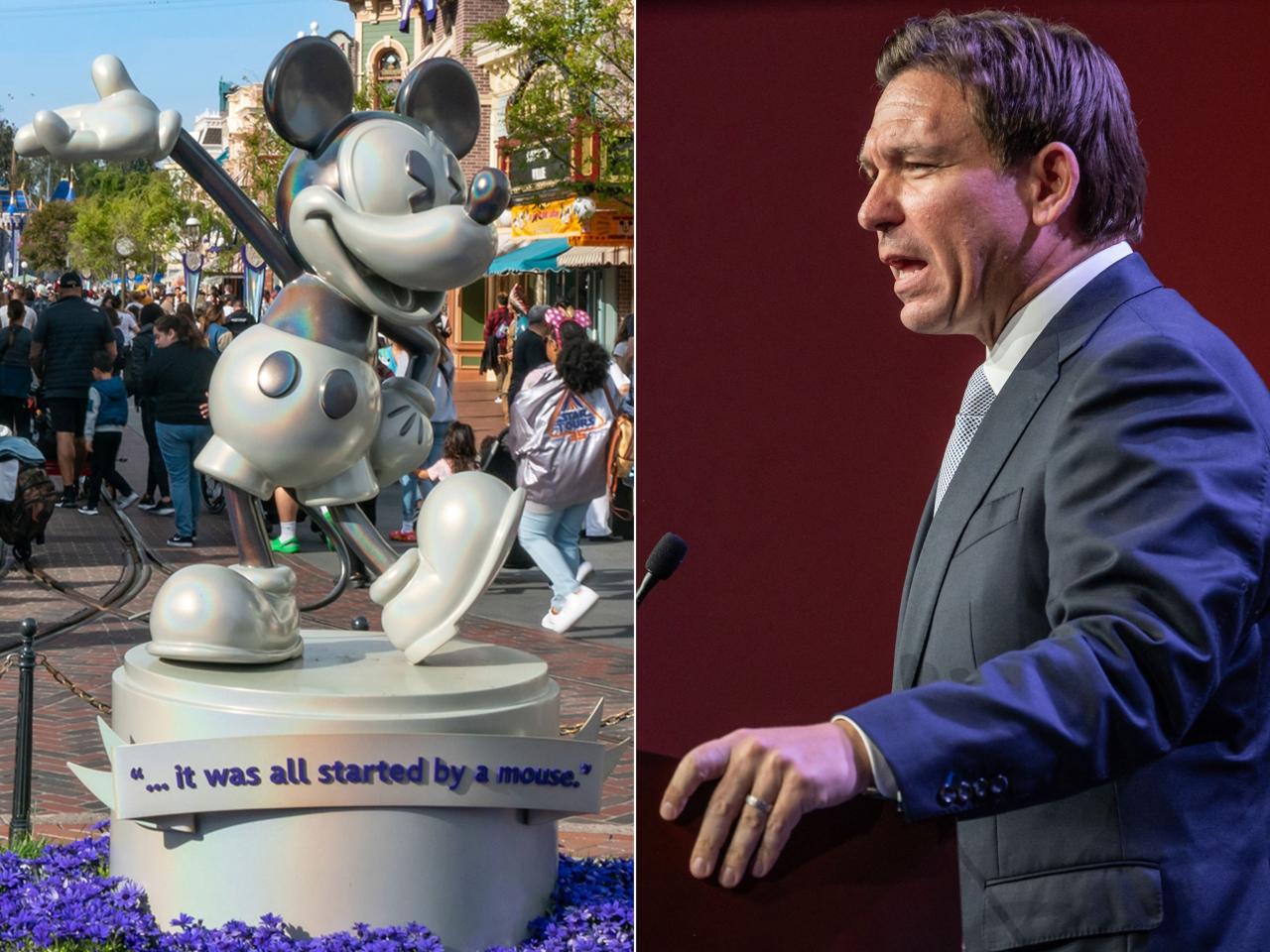
This Disney-Florida showdown isn’t just about a specific law; it’s a test case for how far states can push against large corporations in the name of perceived public good. The potential ramifications extend far beyond the courtroom, influencing everything from corporate lobbying strategies to the future of education and parental rights. Understanding the possible outcomes is crucial for comprehending the long-term effects on both Disney and the state of Florida, and even the future of similar conflicts.
Possible Outcomes of the Lawsuit
The outcome of this lawsuit is highly uncertain, but several possibilities exist. Disney could prevail, forcing a reversal of the law or a significant amendment to its provisions. Conversely, the Florida government might secure a victory, potentially setting a precedent for other states to adopt similar legislation. A settlement, while avoiding a definitive ruling, could also shape future relations between the two entities.
Long-Term Implications for Disney and the Florida Government
A successful lawsuit for Disney could lead to a significant boost in their public image and solidify their reputation as a champion for freedom of expression. This might inspire other companies to challenge state policies they deem inappropriate. Conversely, a win for the Florida government could embolden other states to enact similar laws targeting corporations. This could have a chilling effect on corporate speech and potentially lead to a decline in investment in states with such restrictive policies.
The Florida government’s image could be tarnished if they lose, but strengthened if they win.
Potential Ramifications for Similar Conflicts in the Future
This lawsuit serves as a significant test case for the balance of power between corporations and state governments. The outcome will undoubtedly influence future conflicts of this nature. A ruling for Disney could set a precedent that encourages companies to challenge state regulations, while a ruling for Florida could embolden states to adopt restrictive policies against corporations. The future of similar conflicts will hinge on the interpretation of the court’s decision.
The Disney-Ron DeSantis lawsuit is heating up, and frankly, it’s a bit of a mess. While the legal battles rage on, it’s worth remembering the incredible career of Adrian Beltre, a Texas Rangers legend who’s now on his way to the Hall of Fame. Adrian Beltre hall of fame texas rangers are a reminder of the greatness in sports, and hopefully, these inspiring stories can offer a little distraction from the current political drama surrounding Disney.
This whole thing just feels like a distraction from much more pressing issues. The Disney-DeSantis conflict is just another example of how political agendas can sometimes overshadow important things.
How This Lawsuit Could Shape Future Policy Decisions
The outcome of this case will significantly shape future policy decisions related to corporate influence on political discourse. A ruling in favor of Disney could encourage similar challenges against state regulations, potentially leading to a re-evaluation of existing corporate-state interactions. Conversely, a win for the Florida government could lead to the creation of more restrictive policies targeting large corporations, impacting their ability to operate and influence public discourse.
This case highlights the crucial need for a balance between state power and corporate freedoms.
Potential Scenarios and Outcomes
| Scenario | Outcome for Disney | Outcome for Florida Government | Future Implications |
|---|---|---|---|
| Disney Wins | Enhanced public image, increased influence on policy, potential for similar challenges | Tarnished reputation, potential for decreased investment, diminished political clout | Increased corporate challenges to state regulations, re-evaluation of corporate-state relations |
| Florida Wins | Reduced influence, potential for limitations on future actions | Strengthened reputation, precedent for similar actions in other states | Increased state regulatory power, potentially limiting corporate speech and actions |
| Settlement | Avoids a decisive loss, preserves current operations | Avoids a decisive loss, maintains current policies | Potential for future disputes, uncertain impact on future policy |
Illustrative Examples
This section delves into historical parallels to the DeSantis lawsuit, examining past political conflicts, public opinion dynamics, and legal precedents. Understanding these precedents can provide valuable insights into the potential trajectory of the current legal battle. By exploring similar situations, we can gain a deeper understanding of the complexities involved.
A Compelling Example of a Similar Political Conflict
The 1960s and 1970s saw intense political clashes surrounding school desegregation. The landmark Supreme Court case of Brown v. Board of Education (1954) mandated the desegregation of public schools, sparking vehement opposition from many segments of the population. Protests, boycotts, and legal challenges ensued, highlighting the deeply divisive nature of such issues. The parallels to the current situation lie in the charged political atmosphere and the potential for significant societal upheaval related to educational policies.
A Detailed Example of How Public Opinion Was Shaped in a Previous Similar Conflict
During the school desegregation battles, public opinion was intensely polarized. News coverage often framed the issue as a conflict between “integrationists” and “segregationists,” fueling existing anxieties and prejudices. Media outlets, often reflecting the biases of their respective communities, played a crucial role in shaping public perception. The dissemination of information, whether accurate or skewed, significantly influenced how people understood the issues at hand.
The controversy surrounding school choice policies, and the associated concerns about educational equity, demonstrate a similar potential for polarizing public opinion.
A Historical Precedent Related to This Lawsuit
The Supreme Court’s interpretation of First Amendment rights, particularly concerning speech and religion, offers a relevant historical precedent. Cases involving religious freedom in public schools or the limitations on political speech have frequently been debated. The specifics of the DeSantis lawsuit, touching on educational policy and the balance of state and federal power, invoke precedents set in previous Supreme Court rulings.
The Disney-Ron DeSantis lawsuit is definitely a hot topic right now, highlighting the clash between corporate interests and political stances. But while that’s playing out, it’s important to remember the horrific realities of the past. Stories like the tragic tale of lovers in Auschwitz, Keren Blankfeld and József Debreczeni, found frozen in the cold crematorium, lovers in auschwitz keren blankfeld cold crematorium jozsef debreczeni remind us of the importance of fighting for freedom of expression and standing up against injustices, no matter how big or small they seem.
Ultimately, these issues are all connected, highlighting the fight for values and what we stand for in today’s world, which the Disney-DeSantis saga is a part of.
These precedents provide a framework for evaluating the potential legal arguments and outcomes.
A Vivid Description of a Potential Scenario Regarding a Future Outcome of the Lawsuit
Imagine a scenario where the court rules in favor of the plaintiffs. This decision could potentially lead to significant changes in Florida’s educational landscape. Schools might be required to offer more diverse curricula or adjust their approach to certain topics, prompting further political debates and community divisions. The ruling could also inspire similar legal challenges in other states, creating a ripple effect throughout the education system.
The ramifications of such a decision would likely extend far beyond the immediate legal dispute.
Table Showing Examples of Different Public Reactions to Similar Legal Disputes in the Past
| Legal Dispute | Positive Public Reaction | Negative Public Reaction | Mixed Public Reaction |
|---|---|---|---|
| Brown v. Board of Education | Support for racial equality and integration | Opposition to integration, fear of social change | Ambivalence, confusion, and uncertainty about the future |
| Roe v. Wade | Support for women’s reproductive rights | Opposition to abortion rights, concerns about morality | Varying perspectives depending on religious or personal beliefs |
| Obergefell v. Hodges | Support for same-sex marriage rights | Opposition from religious groups, concerns about traditional marriage | Acceptance among certain demographics but continued opposition in others |
Visual Representation
This section presents visual representations to contextualize the Disney-Florida lawsuit, offering a more comprehensive understanding of the events, geographical impact, financial implications, and future tourism prospects. Visual aids, like timelines and charts, can effectively illustrate complex issues, making them easier to grasp and analyze.
Timeline of Events Leading to the Lawsuit
A timeline, displayed as a horizontal bar graph, will illustrate key events leading up to the lawsuit. The timeline should begin with the initial legislative actions in Florida, followed by Disney’s public statements and reactions, the subsequent legal filings, and culminating in the final filing of the lawsuit. Each event will be marked with a brief description, allowing for a clear visual representation of the chronological sequence of events.
For example, the timeline might highlight specific dates for legislative hearings, press releases, and court filings, aiding in understanding the progression of the dispute.
Geographical Areas Affected by the Controversy
A map of Florida, highlighting the specific areas affected by the controversy, will be presented. This could include the location of Disney World, the specific areas of Florida where the controversy had the most immediate impact, such as Orange County, and any surrounding areas. The map will be color-coded, with different colors representing various levels of impact, such as direct impact (Disney World), indirect impact (nearby counties), and broader impact (statewide).
This map will clearly depict the geographical scope of the conflict.
Financial Implications of the Lawsuit
A bar graph will visually represent the potential financial implications of the lawsuit for both Disney and the Florida government. The graph will include estimates of potential losses or gains for each party, broken down into categories such as lost revenue, legal fees, and potential fines or settlements. For example, one bar could represent the projected loss in Disney’s revenue from reduced tourism, while another would represent the potential costs of the lawsuit for the Florida government.
The data will be sourced from reputable financial analysis.
Potential Impacts on Future Tourism
A flow chart will demonstrate the potential impacts on future tourism in Florida, focusing on Disney World and the surrounding areas. The chart will depict different scenarios based on the outcome of the lawsuit. Possible outcomes could include decreased tourism in the affected areas, or an increase in tourism due to heightened public interest. For example, a scenario with a negative outcome might show a decline in hotel occupancy rates and a decrease in visitor numbers.
The chart will also include the potential long-term consequences for the tourism industry.
Comparison of Economic Situations
A table will compare the economic situations of Disney and the Florida government, highlighting key factors like revenue, employment figures, and investment in the respective regions. The table will include data from recent years, illustrating the economic power and influence of both entities. For instance, the table will present data about the employment numbers in the Disney parks and resorts, as well as the economic contributions of tourism to the state of Florida.
Conclusive Thoughts
The Disney Ron DeSantis lawsuit serves as a potent example of the growing tension between powerful corporations and state governments. This conflict highlights the delicate balance between economic interests, political agendas, and public perception. The potential outcomes and lasting impacts on Florida and beyond are significant, shaping not just the future of Disney, but also the relationship between business and government in the United States.
The public’s response, media coverage, and political reactions are all part of the narrative, adding another layer of complexity to this ongoing saga.
User Queries
What are the specific grievances Disney has against DeSantis?
Disney alleges that DeSantis’s actions are politically motivated and aimed at undermining Disney’s influence and freedom of speech. The specifics of the grievances are a subject of debate in the court.
What are the potential outcomes of this lawsuit?
The potential outcomes range from a settlement to a court decision in favor of one side. This could impact future legislative efforts and the relationship between corporations and government.
How has public opinion reacted to the lawsuit?
Public opinion is divided, with strong support for both sides. Social media has played a significant role in amplifying and shaping these diverse perspectives.
What are the constitutional issues raised in the lawsuit?
The lawsuit raises questions about the balance of power between state and federal governments, the scope of corporate influence, and freedom of speech.



